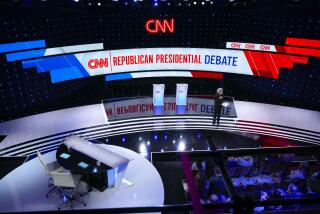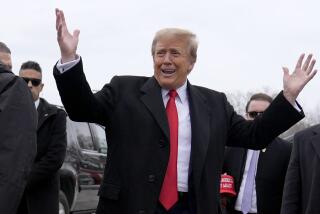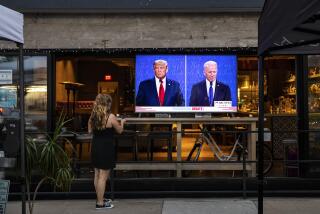So Much for Money
- Share via
Here’s a little spot quiz about American presidential politics. Answer true or false:
1. American presidential election campaigns are too costly.
2. Advertising dominates the campaigns these days, and the candidate with the most ads usually wins.
3. The candidate with the most money to spend usually wins.
4. You can’t rely on the television networks for campaign-news coverage because they are so biased.
If you answered true to all those questions, go to the corner and put on the dunce cap. At least that is the conclusion of election-campaign experts of the American Enterprise Institute after analyzing a number of studies concerning the 1984 political campaign. The reports appeared over a period of months in the institute’s magazine, Public Opinion, and have been compiled into a book edited by Austin Ranney, presidential scholar, and Michael J. Robinson, director of the Media Analysis Project at George Washington University. The overall conclusion was that candidates cannot be peddled through the media like a bar of soap after all--an impression that has gained great currency in recent years.
“Both of us were struck by the fact that the findings of many of the magazine’s articles ran sharply counter to the conventional wisdom,” Ranney and Robinson said.
The studies indicated that American campaigns cost less per voter than those in most other democracies, the number of paid political ads had almost no effect on the results of Democratic presidential primaries in 1984, the candidate who spent the most in a primary lost more often than won, and network news programs showed virtually no political bias on issues in their coverage of the general election campaign.
Unfortunately, political myths die hard. We can only hope that the purveyors of conventional wisdom will keep a tight grip on their copies of the Ranney-Robinson book as they rush off into the snows of Iowa and New Hampshire on the eve of 1988.
More to Read
Get the L.A. Times Politics newsletter
Deeply reported insights into legislation, politics and policy from Sacramento, Washington and beyond. In your inbox twice per week.
You may occasionally receive promotional content from the Los Angeles Times.










